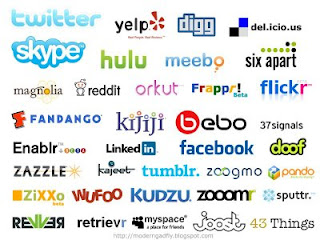Why was there so much bureaucracy and red tape? Why couldn't a room full of people agree on anything other than the time of day? Since then, I have come to understand the purpose of government a little better and why there is so much disagreement in our nation's capitol.
 There are certain functions the government must perform in order to BE the government. It must oversee the creation and distribution of money and coinage through the Mint. It must maintain the armed forces for the defense of our country. It must also follow the Constitution and make sure it is upheld.
There are certain functions the government must perform in order to BE the government. It must oversee the creation and distribution of money and coinage through the Mint. It must maintain the armed forces for the defense of our country. It must also follow the Constitution and make sure it is upheld.Everyone agrees that the government must perform these duties at the bare minimum. Beyond those fundamentals, people start to disagree with each other about what else the federal government should be responsible for.
Some people think the functions of government should be limited to these actions and no more. They feel that the States should possess the power to pass and enforce laws at their own level, rather than be dictated to by politicians and bureaucrats. Let each state decide what is best for itself, rather than rely on nationwide laws to be passed.
Other people feel that the federal government should play a much larger role in our lives. They feel that the government's overall job is to take the money collected from the income tax and redistribute it to wherever it is needed most.
How does one determine which causes or ideas have the greatest need for government aid? Who deserves those federal dollars, how much they deserve, and what they're going to do with the money are all important questions to be considered. This is precisely what politicians debate all day, every day.
The federal government is more than just a building full of longwinded Senators and Representatives in Washington D.C. It is a made up of hundreds of social welfare organizations that employ tens of thousands of people all across the country.
In one way or another, the government subsidizes (pays for): a national retirement system called Social Security, money to each of the 50 states for construction projects (with stipulations), federal loans for college students, federal loans for homebuyers, and subsidies to farmers so they will not grow certain crops.
The government also regulates broadcast media including television, radio, and consumer electronics through the FCC. They set safety standards for the vehicles we drive through the NHTSA and the foods we eat through the FDA. They set strict laws relating to aviation and marittime industries. They operate our national parks under the National Park Service. They provide a nationwide system of mail delivery through the Post Office.
These and hundreds of other organizations and regulatory agencies are all funded by the federal government (see the complete list). Each organization has an annual budget to work with, which never seems to be enough.
It is very difficult to decide how much of the money collected from the annual Income Tax should go to each of these hundreds of organizations. Which is most important: widening a freeway in Florida or making sure that the Superfund program has the money to clean up a toxic waste site in Pennsylvania?
What will the government do to help farmers in the midwest during a drought, or college students in California who cannot afford tuition? Can they make more annual inspections of the nation's nuclear power plants if they hold off on buying new planes for the Air Force for another year? What could the consequences of that decision be?
And therein lies the problem: there are only so many dollars available and a trillion ways to spend them. Of course, the Representatives from each of the states will lobby before the Congress for more money for their own states. Representatives from California will explain why California needs more money for its college students. Representatives from Florida will plead their case for that wider freeway.
Each of the hundreds of organizations that the government supports feels that it should get all of its requested funding. Every organization feels that it is of great national importance, from the space program to the arts council. Because it is not possible to give everyone all of the money they desire, compromises must be made.
The federal government attempts to please everyone by deciding that Florida will get two additional lanes and the Air Force will get X number of planes and the Superfund program will get a 5% budget increase over the previous year.
Of course, the outcome of every decision is hotly contested by talk show hosts, private citizens, and even other government agencies. Being a politician on Capitol Hill means taking part in a vicious tug-of-war for those precious government dollars. Everyone wants them and yet there are not enough to go around. That is what they argue about all day in Washington.




